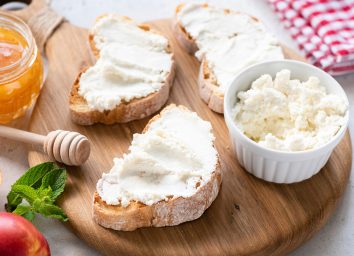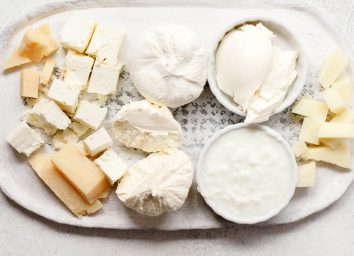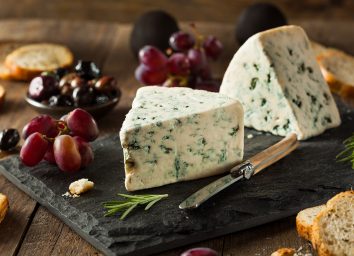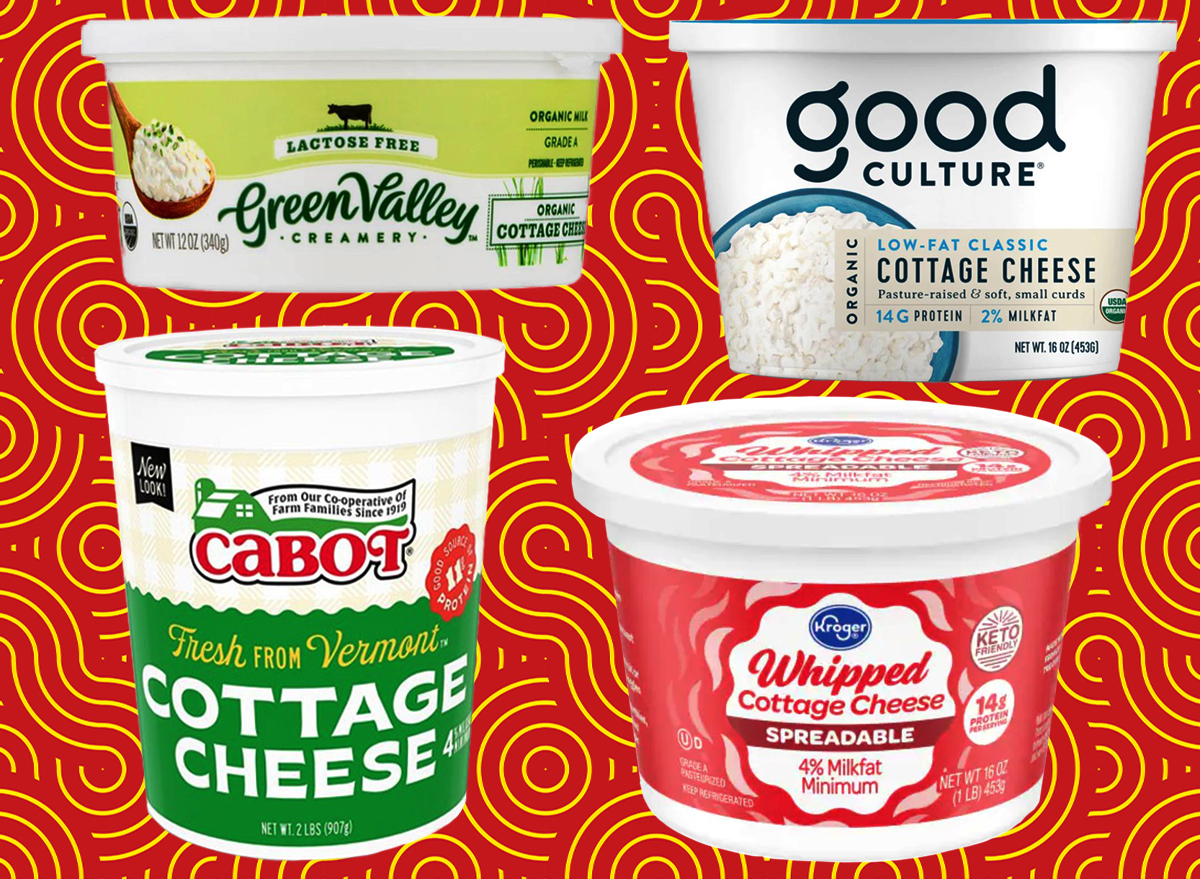
There's no denying it—cottage cheese is having a serious moment right now. From TikTok video explainers for cottage cheese-centric DIY ice cream alternatives you can whip up in a flash to cottage cheese-covered toast recipes that are giving the beloved avocado toast a run for its money, this protein powerhouse is finally getting the reboot it's always deserved. But now that this once archaic dairy delight is experiencing a resurgence in popularity, to get on the bandwagon in a way that serves you well, you'll need to know about the best cottage cheese brands you can buy.
We asked registered dietitians to tell us what they think the best cottage cheese brands are that are currently lining the dairy cases of your local grocer (and which ones you should avoid). Keep reading to find out which cottage cheese products they prefer—and after finding the best brand for you, find out how to zhuzh up your purchase by checking out these creative cottage cheese recipes.
What is cottage cheese?
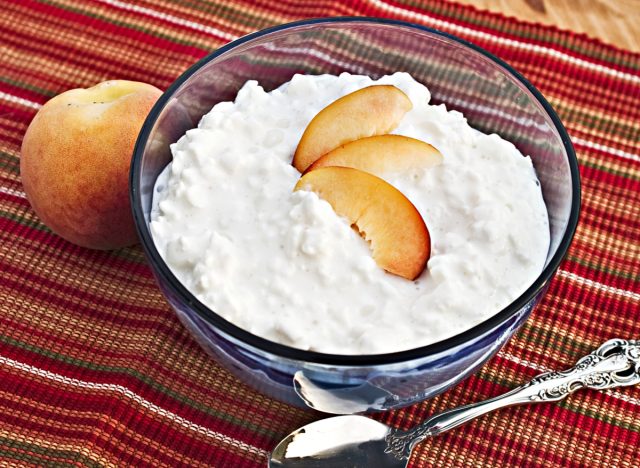
Technically, cottage cheese is cheese curds.
"Cottage cheese is a mild-flavored, fresh cheese curd product made by draining the cheese instead of pressing it, so it retains moisture and some whey. Unlike other cheese products, it doesn't undergo an aging process," says Charlotte Martin, MS, RDN, CSOWM, CPT, registered dietitian nutritionist and owner of Shaped by Charlotte, LLC.
"It's super versatile. You can mix it into a protein smoothie, make pancakes with it, spread some onto a piece of toast and top with avocado, enjoy as is, and so much more!" says Martin.
What are the nutritional benefits of cottage cheese?
As a dairy product, cottage cheese is loaded with important vitamins and nutrients, including protein. Not only does it fill you up and keep you full, but protein is also an essential nutrient that enables us to feel fuller during meals, build muscle, and even lose weight. Although there are many sources of protein out there—red meat, walnuts, peas, eggs, legumes, and fish, to name a few—cottage cheese is one of the tastiest and most affordable dairy-based protein sources you can get.
"Cottage cheese is one of the most underrated protein sources out there," explains Martin. "[It's] packed with nutrients, including B-complex vitamins, like vitamin B12 and calcium, and it's an excellent source of protein, with 1 cup of small curd cottage cheese containing nearly 25 grams of protein," Martin adds.
In addition to having roughly 25 grams of protein per cup, according to the USDA, a single cup of small curd cottage cheese contains:
- 220 calories
- 9.7 grams fat
- 7.6 grams carbs
- 6 grams sugar
- 25 grams protein
- 187 milligrams calcium (14% DV)
- 358 milligrams phosphorous (29% DV)
- 0.9 milligrams zinc (9% DV)
- 21.8 micrograms selenium (40% DV)
- 27 micrograms folate (7% DV)
"The majority of protein in cottage cheese is casein protein, as opposed to whey, which is slowly absorbed and helps prevent muscle breakdown. Some brands may even contain probiotics, aka friendly gut bacteria that support gut health," adds Martin.
How do you pick the best cottage cheese brand for you?

"Finding the right cottage cheese can be difficult. I believe it comes down to personal preference and what your health goals are," says Amber Pankonin MS, RD, LMNT, registered dietitian and owner of Stirlist. "Cottage cheese can be a great snack because it's filled with quality protein and it's low in carbohydrates, but it can also be high in calories and sodium—so learning to read labels is really important when finding the right brand for you."
- Low or no added sugars: "Just as with picking Greek yogurt, I look for cottage cheeses that have no added sugar, which is usually in the flavored varieties," says Martin.
- Low sodium: Another thing to be mindful of is the sodium content, especially if you have a propensity for high blood pressure. "Most cottage cheese brands are high in sodium," explains Martin, so "if you need to keep your sodium intake low, you can find brands labeled 'reduced sodium' or 'no salt added.'" According to the American Heart Association, most adults should limit their sodium consumption to around 1,500–2,300 milligrams per day, and for those with high blood pressure, keeping your daily sodium intake to around 1,500 milligrams or less is ideal.
- Low- or full-fat: As with most dairy products, you can find no-, low-, and full-fat cottage cheese products. Which one you choose can be dependent on your health goals, but Caroline Young, MS, RD, LD, RYT, owner of Whole Self Nutrition, recommends full-fat. "I often recommend looking for full-fat cottage cheese options because they are the most satisfying due to their higher fat content, and it usually tastes a heck of a lot better!"
- Minimal, but high-quality, ingredients: "[The best cottage cheese] should contain minimal ingredients, and it should be made with quality dairy," says Lauren Manaker, MS, RDN, registered dietitian and author of The First Time Mom's Pregnancy Cookbook and Fueling Male Fertility.
Health concerns aside, selecting a cottage cheese product comprised of quality ingredients and flavors you know you and your family will love might be the ultimate determinant in what you choose—and that's a-ok!
The 8 Best Cottage Cheese Brands You Can Buy
1. Good Culture Low-Fat Cottage Cheese
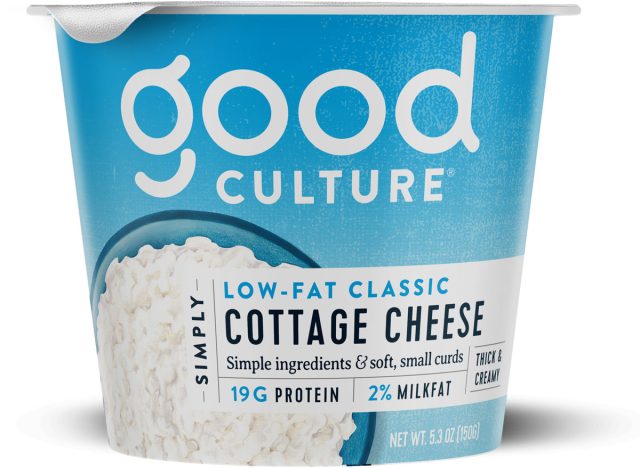
"I like that it's low in sugar and comes in a plain flavor plus a fruit flavor that helps to jazz up 'plain old cottage cheese'," says Maggie Michalczyk, RDN, registered dietitian nutritionist who runs the blog Once Upon a Pumpkin. "And I like that they are pre-portioned–great for taking on the go."
2. Nancy's Organic Whole Milk Cottage Cheese
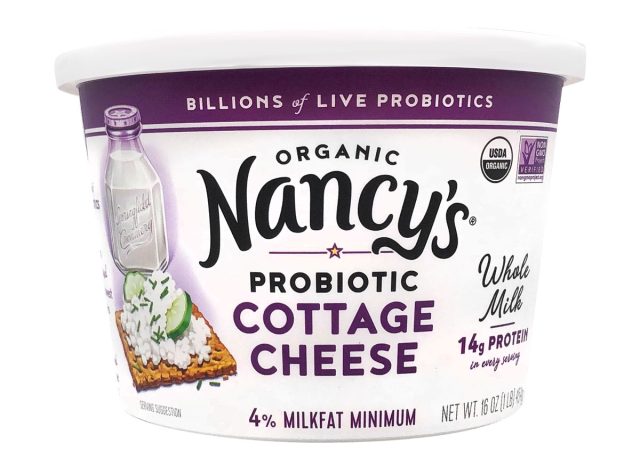
"It's made with minimal ingredients, free of artificial ones, and is free of pectins, gelatins or thickeners (which aren't known to cause harm but may be problematic for some individuals)," says Martin. "Plus, they've added strains of Bifidobacterium and Lactobacillus, probiotics which may help support immune and digestive health."
3. Green Valley Lactose-Free Cottage Cheese
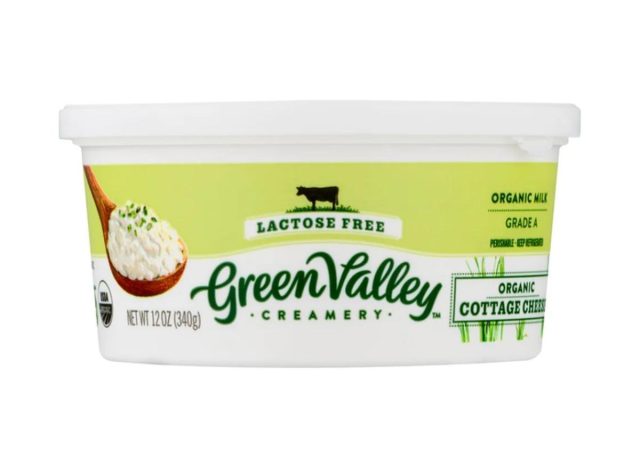
"Green Valley Lactose-free Cottage Cheese is a great choice for those who are afraid dairy products may cause digestive distress," says Kim Kulp, RDN, owner of Gut Health Connection in the San Francisco Bay Area. "Made with only natural ingredients, Green Valley doesn't depend on emulsifiers and gums that are so common in other brands for its rich and creamy texture."
4. Cabot's Cottage Cheese
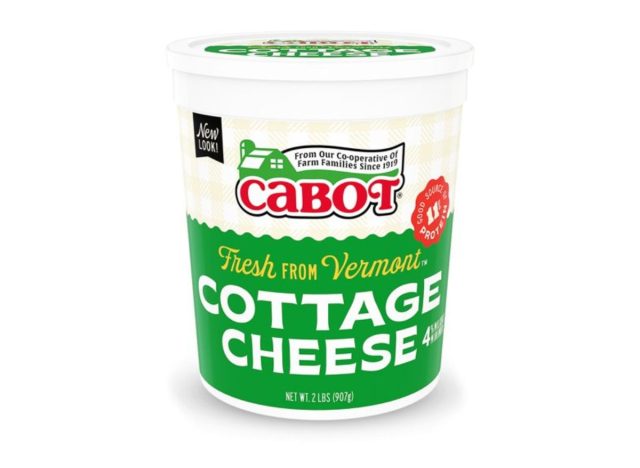
"Cabot's Cottage Cheese is [a] favorite of mine," Caroline Thomason, RD, CDCES, a northern Virginia-based dietitian, tells Eat This, Not That! "Their homemade-style product delivers a delicious and nutritious option that pairs well as a snack or side dish to your meal."
5. 365 Organic Cottage Cheese 4% Milkfat
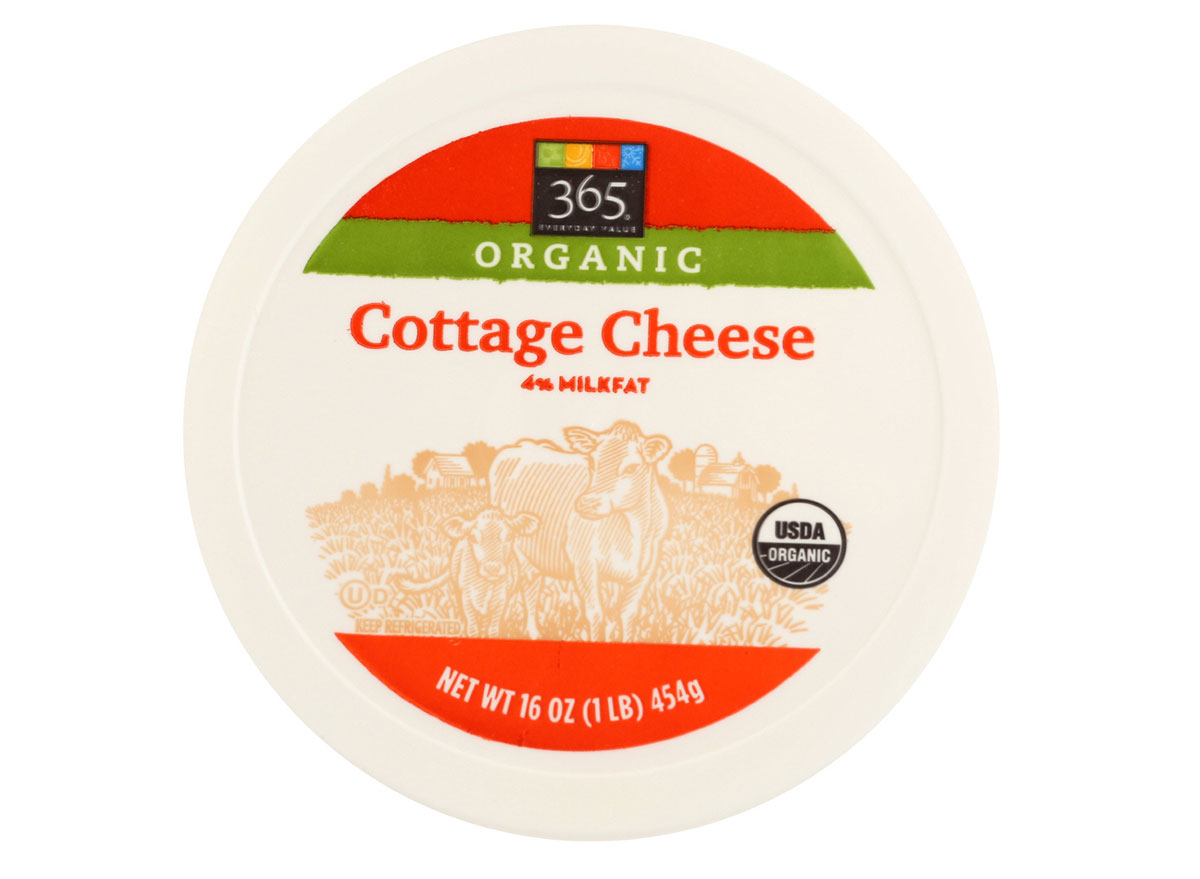
"I think a little higher milk fat can be very satisfying when it comes to picking the right cottage cheese. This one has great flavor, and it's also much cheaper compared to other options," says Pankonin.
Young is also a big fan of Whole Foods' whole-fat cottage cheese. "I love 365 Whole Foods' Cottage Cheese Full-Fat variety because it is highly satiating and delicious," she says.
6. Daisy Cottage Cheese 4% Milkfat
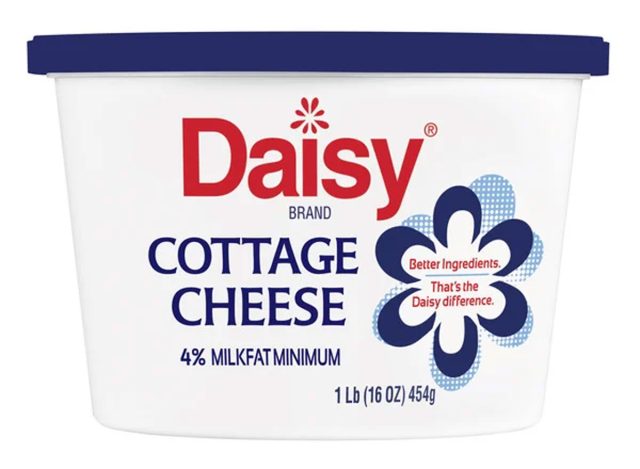
"I think the flavor is great and I like this one because I can find it at most grocery stores for a reasonable price," says Pankonin.
7. Kroger's Whipped Cottage Cheese
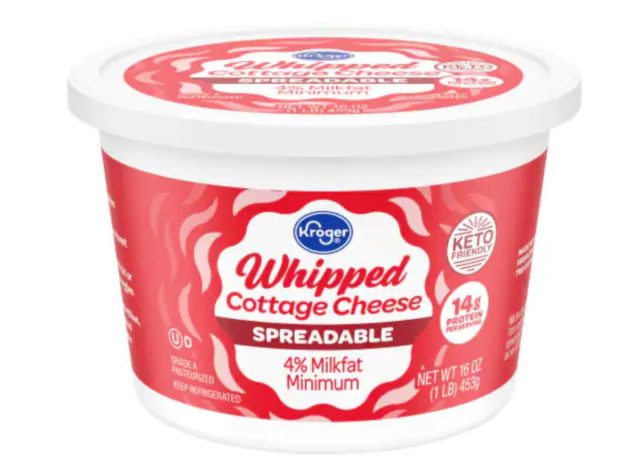
"I love recommending Kroger's Whipped Cottage Cheese," says Thomason. "It's a fun way to play with the viral cottage cheese trend and is easily spreadable for some high protein toast. One half-cup serving delivers a hefty dose of 14 grams of protein."
8. Wegmans Organic 2% Cottage Cheese
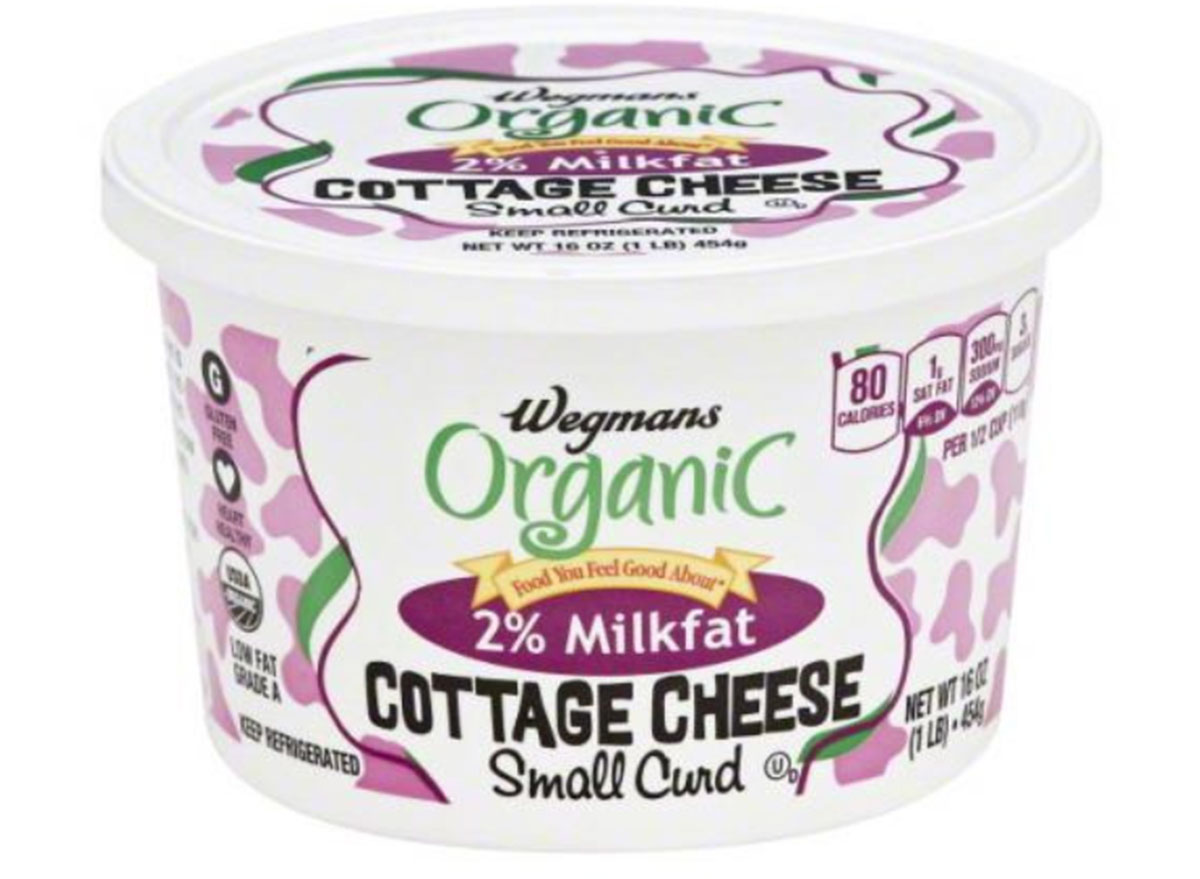
"As long as it does not have added sugars, you can't go wrong with any store brand of cottage cheese," says Michalczyk.
The 5 Worst Cottage Cheeses
1. Breakstone Cottage Cheese 2 Percent
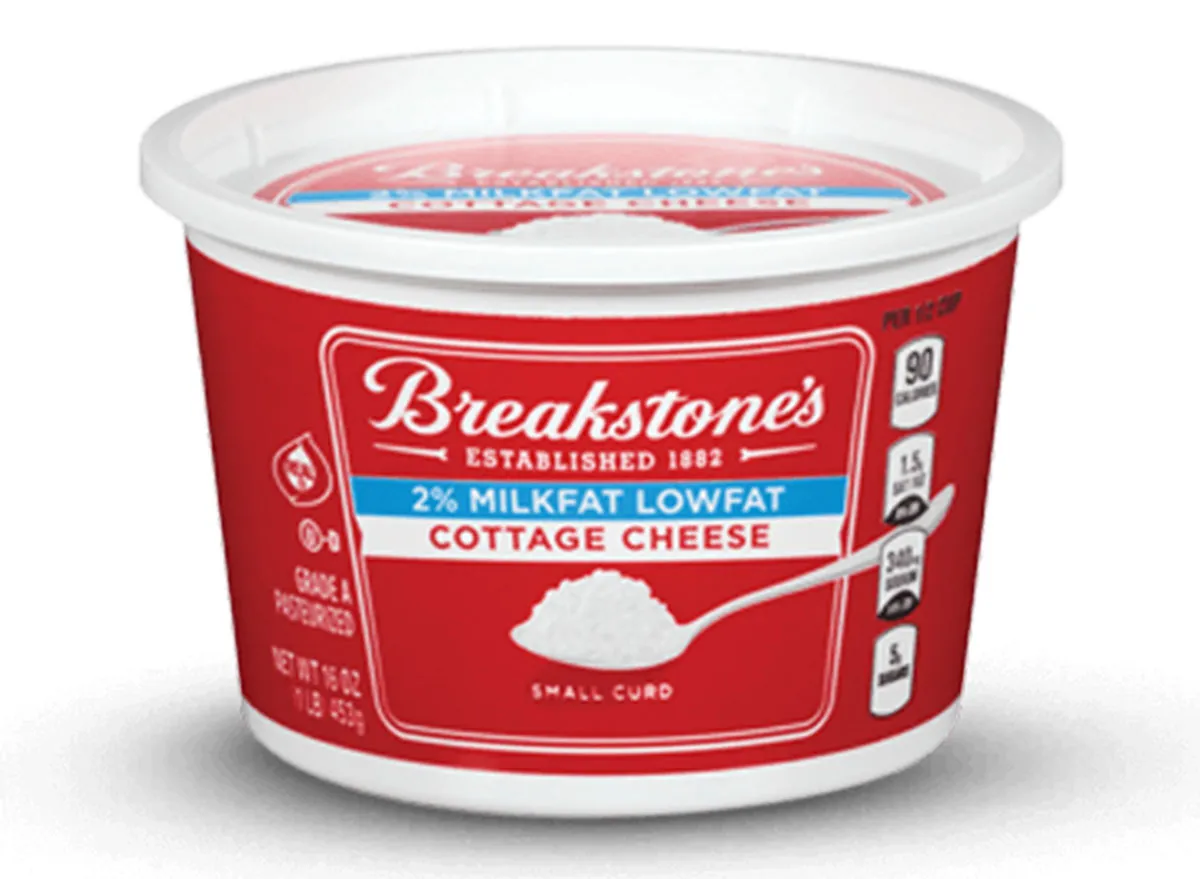
"Breakstone's ingredient list is much longer than those listed above and contains ingredients that seem unnecessary (although harmless) to make a good-tasting cottage cheese," says Martin.
2. Hood Cottage Cheese
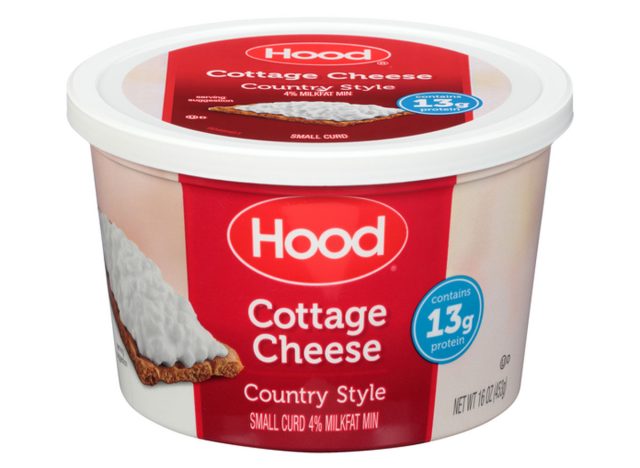
"Like Breakstone, the ingredient list for Hood's Cottage Cheese is long, and many of the ingredients seem unnecessary considering many tasty brands don't include them," says Martin. "For example, I'm no food scientist but I'm not sure why a plain cottage cheese would need to include natural flavor. I'm not saying natural flavors are a harmful ingredient, they just seem unnecessary in this case!"
3. That's Smart Low-Fat Cottage Cheese 1% Milkfat
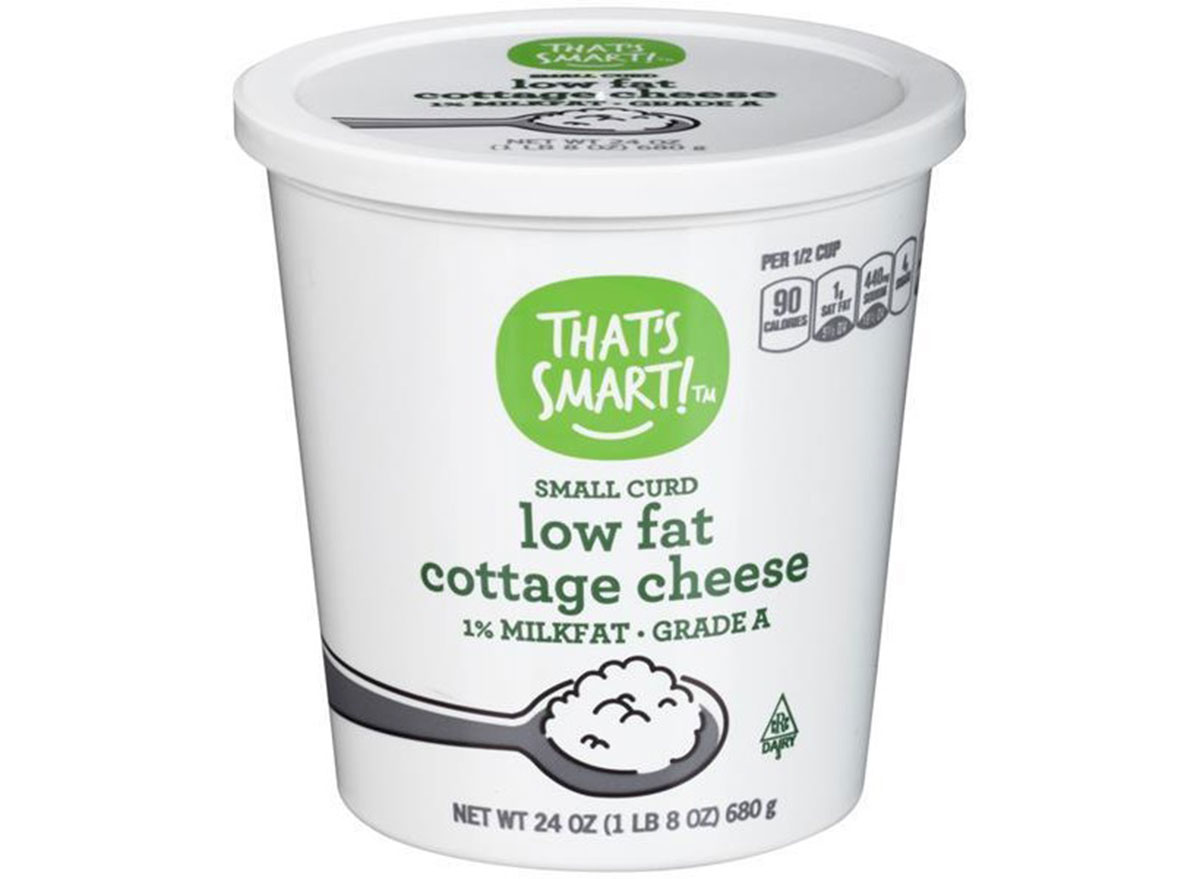
"Even though this low-fat cottage cheese is low in calories, I just don't find it very satisfying," says Pankonin. "It's a little higher in sodium compared to the others and personally, I prefer a little more fat as I find that more satisfying while snacking."
4. Market Pantry Cottage Cheese
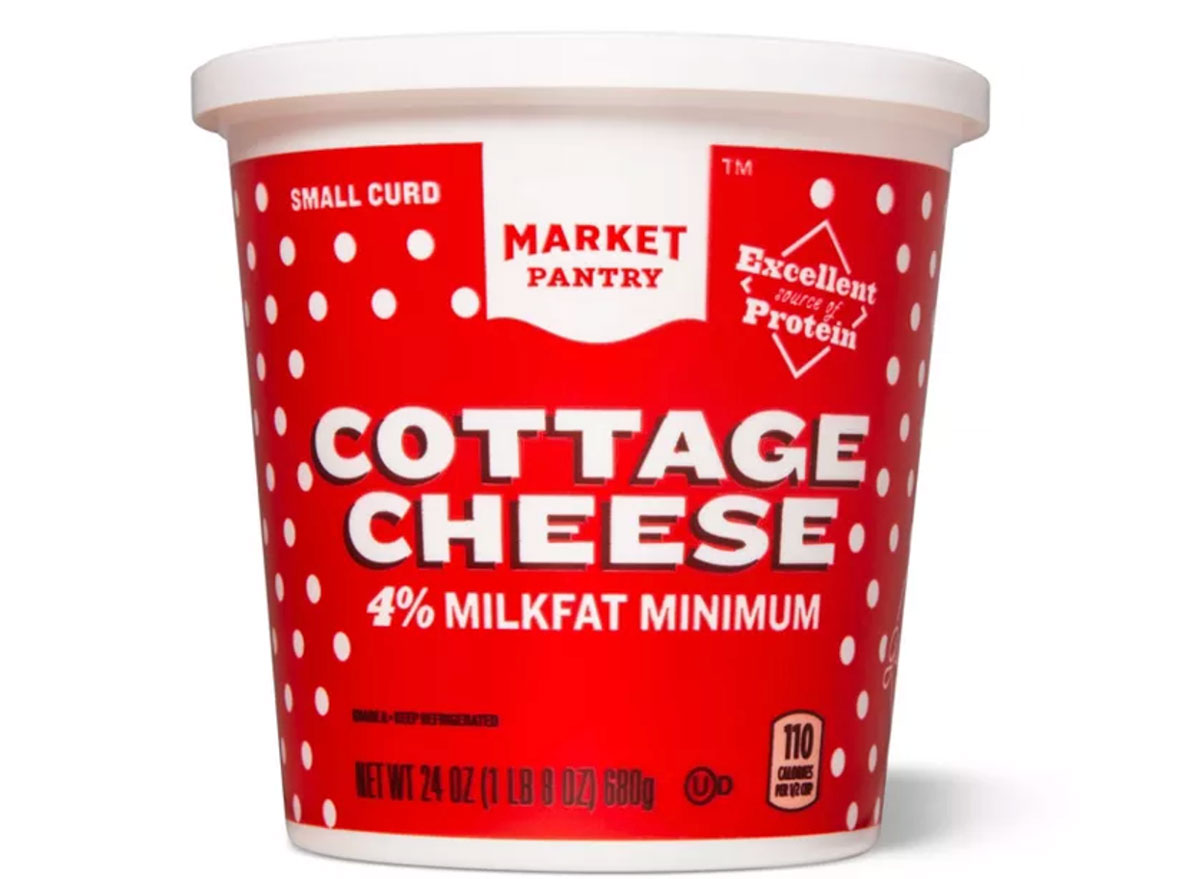
"This is another cottage cheese with a lengthy ingredient list. This ingredient list also includes carrageenan, which is very controversial," says Martin. "Carrageenan is added to some food products as a thickener and emulsifier. Some evidence suggests carrageenan triggers inflammation and digestive issues; however, we have limited research on this. If you have any concerns over this ingredient, most other brands don't include it so it's easy to avoid."
5. Organic Valley Lowfat Cottage Cheese 2% Milkfat
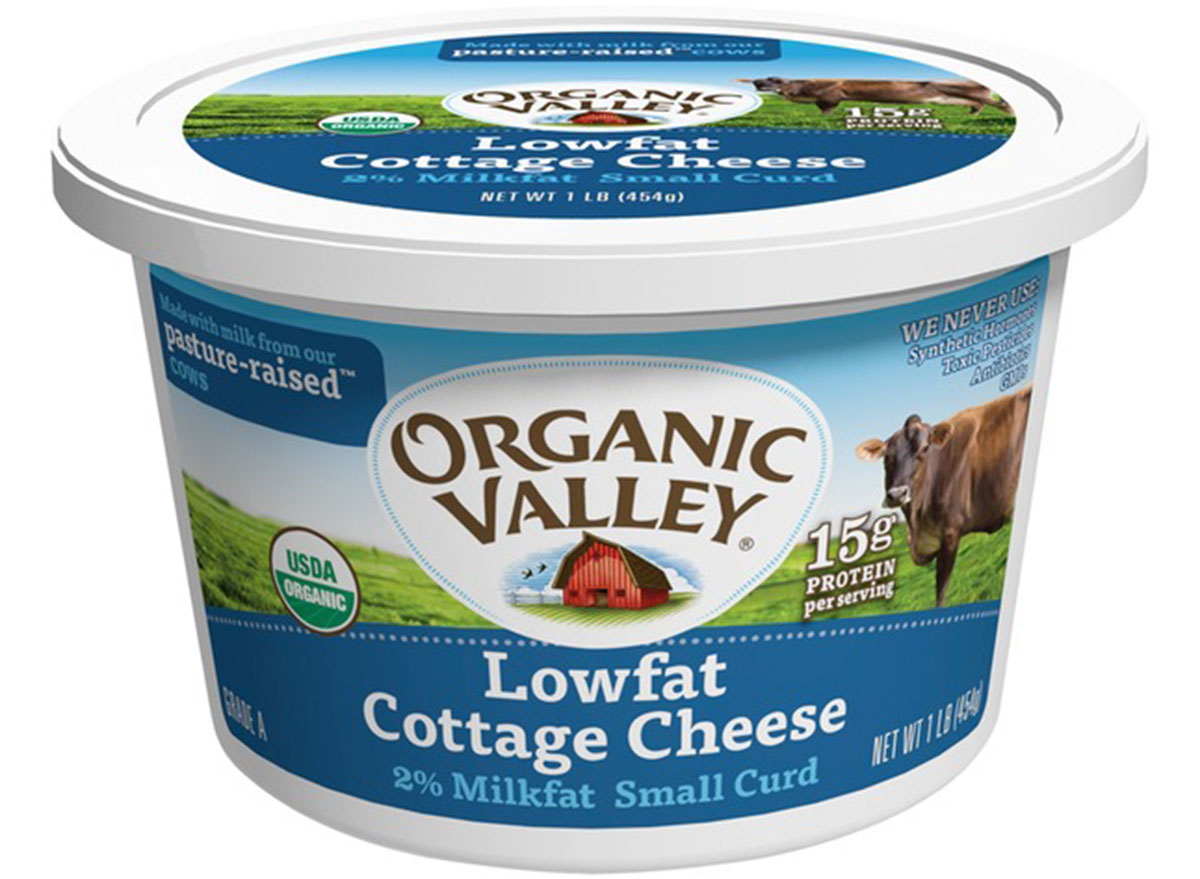
"Even though it's lower in fat and higher in protein compared to similar products, it does contain 450 mg of sodium, which is a little higher than I would recommend," says Pankonin. "This brand is also much more expensive than other options."
A previous version of this story was originally published on February 13, 2020. It has been updated to include additional copy and proofreading revisions, more research, and updated contextual links.


